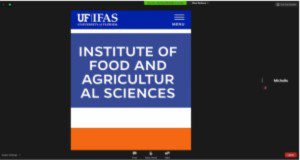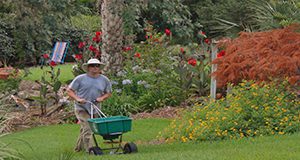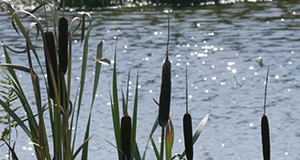Delivering online, live CEU (Continuing Education Unit) training has become increasingly practical with the development of programs like Zoom. However, there are key differences between the two platforms that Zoom offers, Zoom Meeting and Zoom Webinar. Understanding the pros and cons of each platform and how to utilize each to deliver CEU content is key. Through descriptions and screenshots of the program, this new 7-page publication of the UF/IFAS Pesticide Information Office helps readers navigate the platforms and better understand which one best fits their needs. Written by Brett W. Bultemeier and Michelle Atkinson.
https://edis.ifas.ufl.edu/pi286
Tag: Michelle Atkinson
Urban Fertilizer Ordinances in the Context of Environmental Horticulture and Water Quality Extension Programs: Frequently Asked Questions
Excess nitrogen (N) and phosphorus (P) in water bodies are a leading cause of water quality degradation statewide. More than 50 Florida counties and municipalities now have formal fertilizer ordinances, which in some cases include fertilizer blackouts, or bans on the usage of N and P fertilizers during certain times of the year. This 8-page document provides information on the underlying issues of fertilizer use, with an emphasis on an urban setting, and outlines the current state of the science on urban fertilizers and water quality in Florida. Written by Michael D. Dukes, Lisa Krimsky, Mary Lusk, Laurie Trenholm, Bryan Unruh, Michelle Atkinson, and Rao Mylavarapu, and published by the UF/IFAS Department of Agricultural and Biological Engineering, February 2020.
https://edis.ifas.ufl.edu/ae534
Strategies to Encourage Adoption of Stormwater Pond Best Management Practices (BMPs) by Homeowners
Man-made ponds can be a useful way to collect, store, and treat stormwater runoff in residential areas. However, these ponds can become polluted when runoff contains fertilizers, pesticides, and pet waste from the neighborhood. This 8-page fact sheet outlines several best management practices (BMPs) for reducing stormwater pond pollution. Based on a survey of residents who live near stormwater ponds, the authors recommend strategies Extension educators can use to encourage residents to adopt these BMPs. Written by Emily Ott, Paul Monaghan, Ondine Wells, Gail Hansen, Laura Warner, and Michelle Atkinson, and published by the UF Department of Agricultural Education and Communication, July 2015.
http://edis.ifas.ufl.edu/wc214


